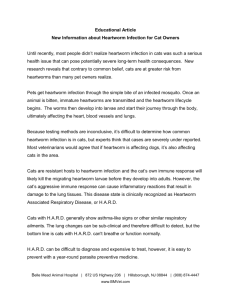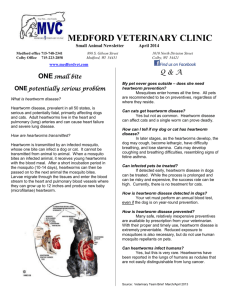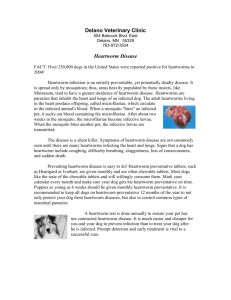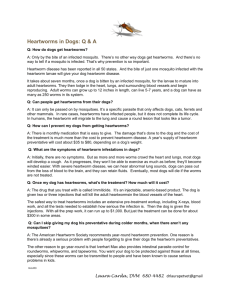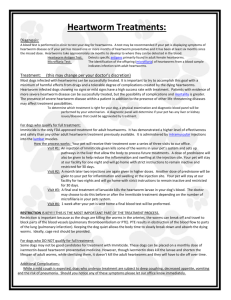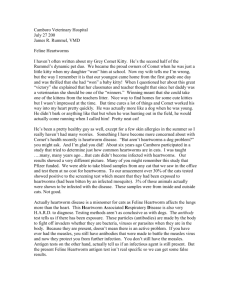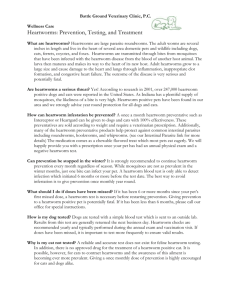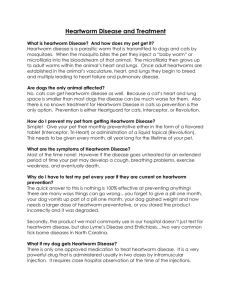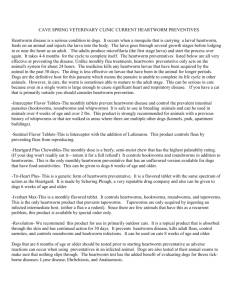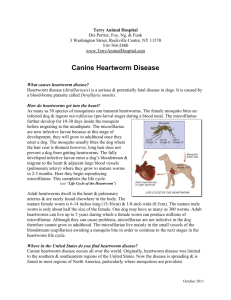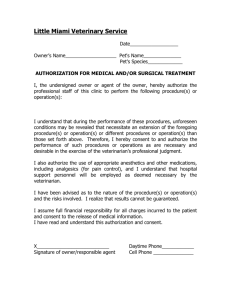Heartworm Disease - Park Rose Animal Hospital
advertisement
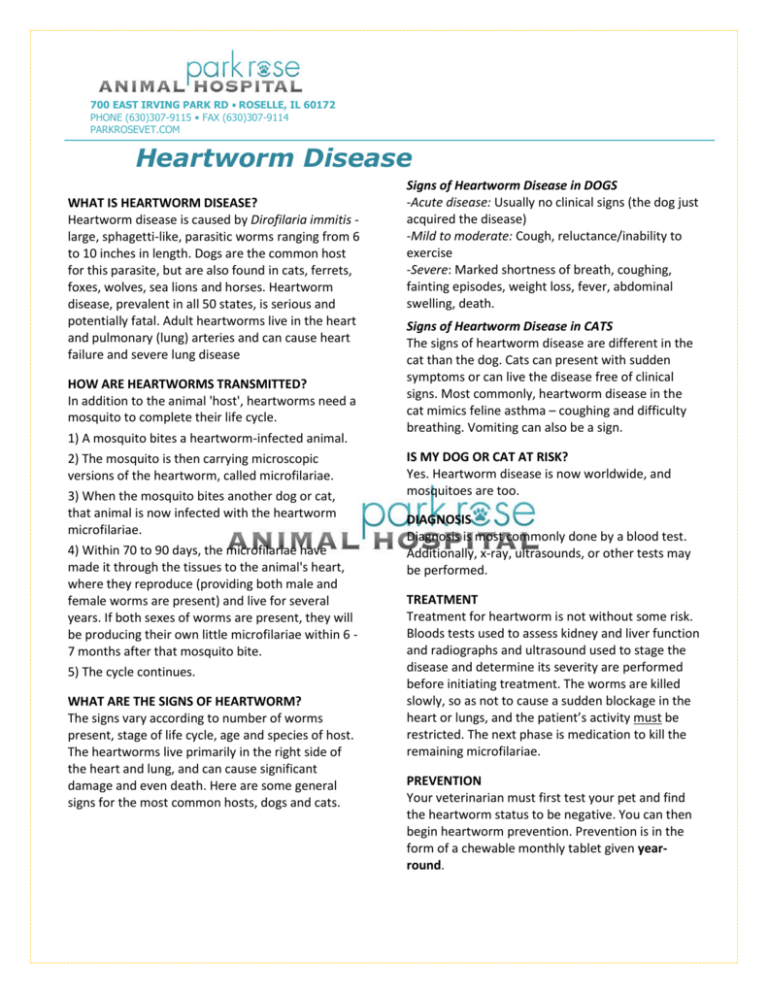
700 EAST IRVING PARK RD • ROSELLE, IL 60172 PHONE (630)307-9115 • FAX (630)307-9114 PARKROSEVET.COM Heartworm Disease WHAT IS HEARTWORM DISEASE? Heartworm disease is caused by Dirofilaria immitis large, sphagetti-like, parasitic worms ranging from 6 to 10 inches in length. Dogs are the common host for this parasite, but are also found in cats, ferrets, foxes, wolves, sea lions and horses. Heartworm disease, prevalent in all 50 states, is serious and potentially fatal. Adult heartworms live in the heart and pulmonary (lung) arteries and can cause heart failure and severe lung disease HOW ARE HEARTWORMS TRANSMITTED? In addition to the animal 'host', heartworms need a mosquito to complete their life cycle. 1) A mosquito bites a heartworm-infected animal. 2) The mosquito is then carrying microscopic versions of the heartworm, called microfilariae. 3) When the mosquito bites another dog or cat, that animal is now infected with the heartworm microfilariae. 4) Within 70 to 90 days, the microfilariae have made it through the tissues to the animal's heart, where they reproduce (providing both male and female worms are present) and live for several years. If both sexes of worms are present, they will be producing their own little microfilariae within 6 7 months after that mosquito bite. 5) The cycle continues. WHAT ARE THE SIGNS OF HEARTWORM? The signs vary according to number of worms present, stage of life cycle, age and species of host. The heartworms live primarily in the right side of the heart and lung, and can cause significant damage and even death. Here are some general signs for the most common hosts, dogs and cats. Signs of Heartworm Disease in DOGS -Acute disease: Usually no clinical signs (the dog just acquired the disease) -Mild to moderate: Cough, reluctance/inability to exercise -Severe: Marked shortness of breath, coughing, fainting episodes, weight loss, fever, abdominal swelling, death. Signs of Heartworm Disease in CATS The signs of heartworm disease are different in the cat than the dog. Cats can present with sudden symptoms or can live the disease free of clinical signs. Most commonly, heartworm disease in the cat mimics feline asthma – coughing and difficulty breathing. Vomiting can also be a sign. IS MY DOG OR CAT AT RISK? Yes. Heartworm disease is now worldwide, and mosquitoes are too. DIAGNOSIS Diagnosis is most commonly done by a blood test. Additionally, x-ray, ultrasounds, or other tests may be performed. TREATMENT Treatment for heartworm is not without some risk. Bloods tests used to assess kidney and liver function and radiographs and ultrasound used to stage the disease and determine its severity are performed before initiating treatment. The worms are killed slowly, so as not to cause a sudden blockage in the heart or lungs, and the patient’s activity must be restricted. The next phase is medication to kill the remaining microfilariae. PREVENTION Your veterinarian must first test your pet and find the heartworm status to be negative. You can then begin heartworm prevention. Prevention is in the form of a chewable monthly tablet given yearround.
